
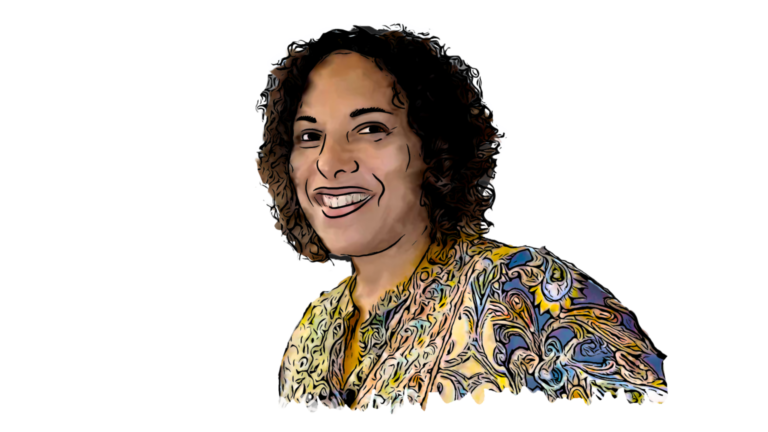
From Doubt to Confidence
Cynthia Burks, Senior Vice President and Chief People and Culture Officer at Genentech
At around the age of eight, Cynthia Burks stood on a picket line in Milwaukee, Wisconsin. Her father was a union steward at the Ladish Company, a steel manufacturing factory. He explained why they were there, why it was important to take a stand for their fellow workers, and why their family would not have a paycheck that week.
At that time, Cynthia never could have imagined that one day her career would take her to the C-suite of Genentech, but she did learn, even at that early age, the importance of a commitment to her community.
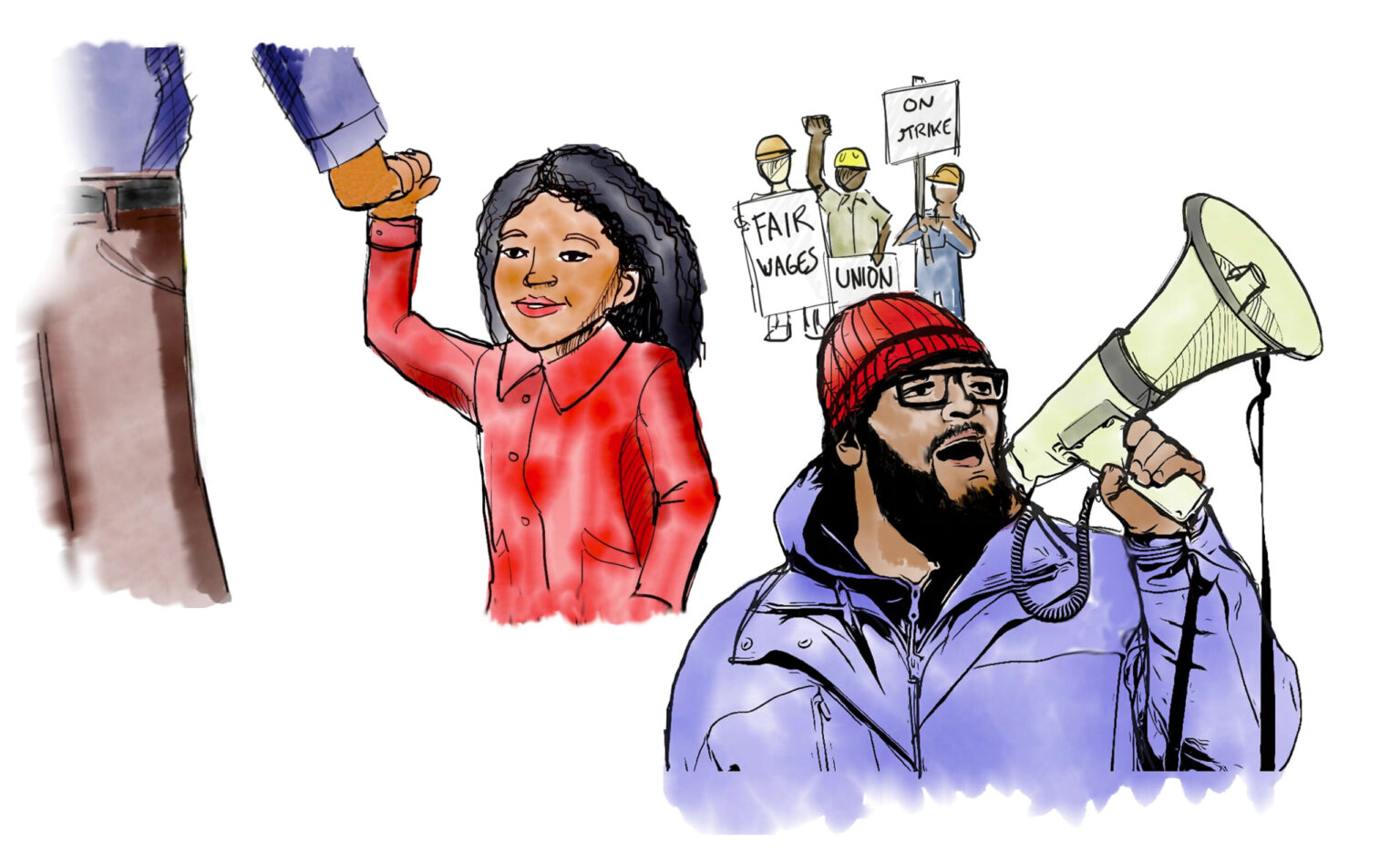
Path to the "Help" Mindset
As Genentech’s Chief People and Culture Officer since June 2019, Cynthia distills her role down to a simple directive: helping individuals and organizations realize their full potential. Managing a workforce of nearly 200 HR professionals, with over 13,000 total employees, she serves as the catalyst for those around her to grow professionally and excel throughout their careers, and to continue Genentech’s over four decades of innovations in biotechnology.
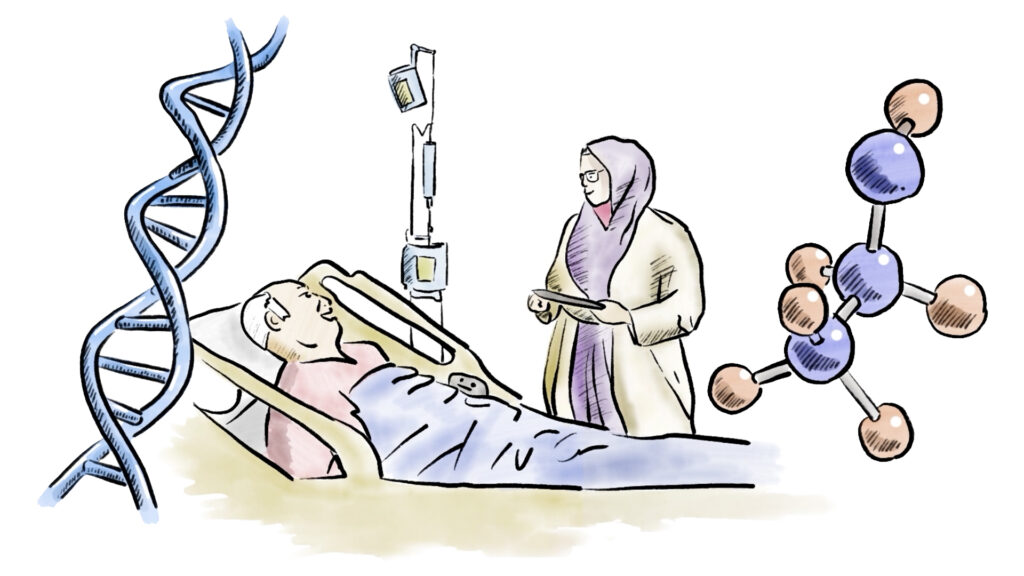

Cynthia was raised by her parents to value education, and encouraged to be intellectually curious. Growing up in a difficult neighborhood, Cynthia’s parents, Excell and Joan, regularly took her and her siblings to museums, exposing them to examples of discovery, accomplishment and perseverance, and in turn to an awareness of their own potential. That sense of possibility has stayed with Cynthia her entire life, and she became the first person in her family to graduate from college.
Given her understanding and appreciation of every individual’s potential, it is no wonder that Cynthia has found herself advocating for others to realize their potential; she views the world through a help mindset, seeking to facilitate growth and progress.
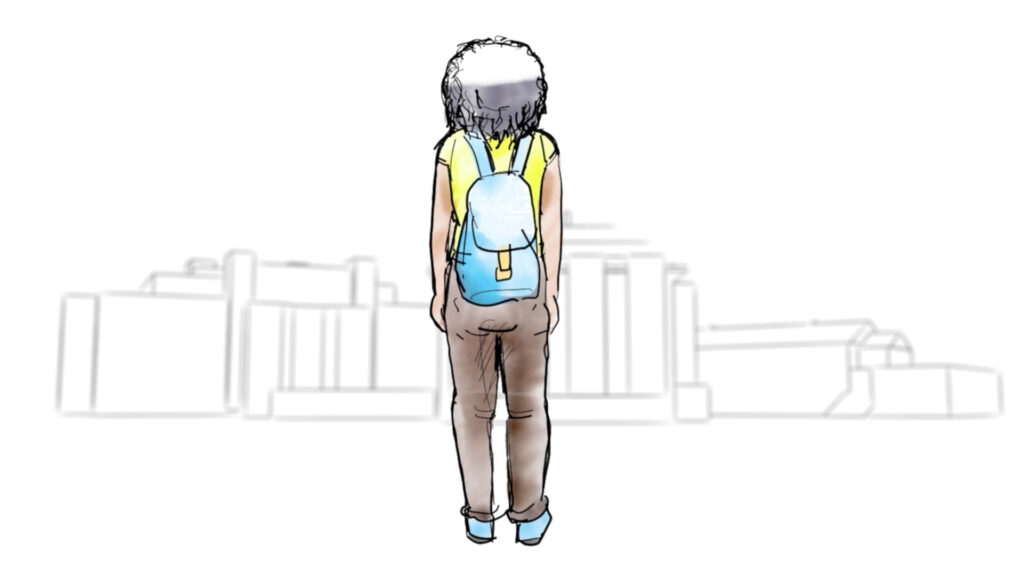
Cynthia then moved back to Milwaukee to give banking another try, but instead found herself starting on a new career path. During an interview for a banking position, her interviewer suggested she consider a human resources role, seeing her potential to excel in this work.
Now 26 years old, Cynthia’s deeply ingrained determination to help others within the community led to her applying for and being accepted to the Peace Corps. Yet, as she was preparing to leave for East Africa, a family member’s health challenges led to her adoption of her two young nephews.
Values as GPS
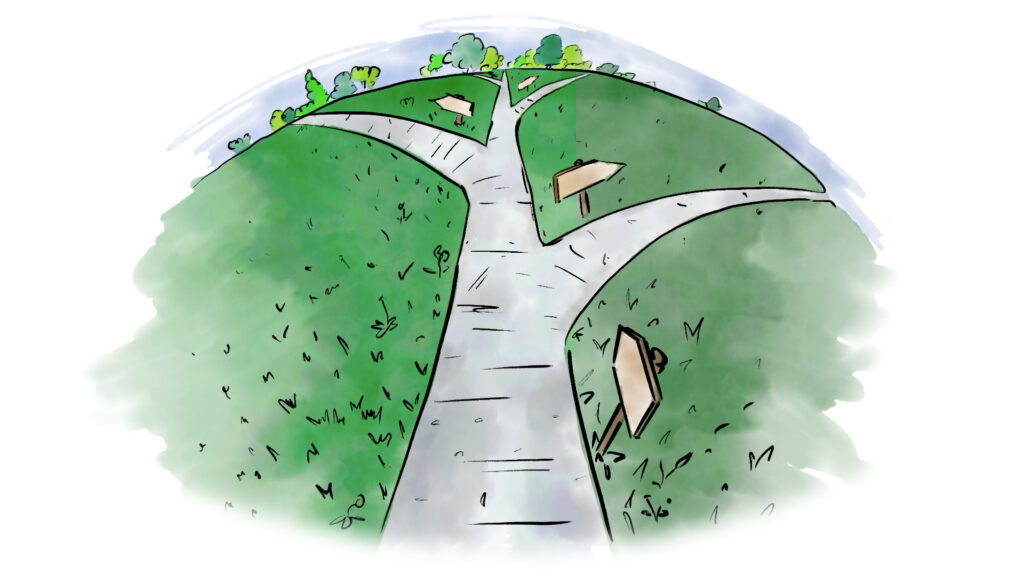
While undergoing these huge changes in her life, Cynthia did not slow down. She continued to push herself and excelled both professionally and academically. She earned a master’s degree in international business from Thunderbird.
Cynthia has grown comfortable allowing life to take her in unexpected directions. She has chosen paths that she might never have envisioned. Throughout, each opportunity was aligned with her values, and she chose mentors who shared her commitment to giving back to their communities.
Agency Powered by Self-awareness
Cynthia’s values push her to help others and empower them to reach their full potential, rather than just choose between jobs. Her focus is constantly being pulled in different directions, and she has had to become adept at distinguishing signals from noise.
This skill was first honed in her first year of law school. Tackling a seemingly insurmountable amount of reading, Cynthia learned to “issue spot”, separating key points from extraneous information. She has applied this systematic approach to identify foundational takeaways ever since.
While Cynthia’s life and career has been one she could not have planned for or foreseen, she has displayed an indomitable confidence and self awareness in the agency she has in her life. Cynthia shows us all that while the events in our lives inevitably impact who we are, they do not determine who we can become, or the limitations of our potential.
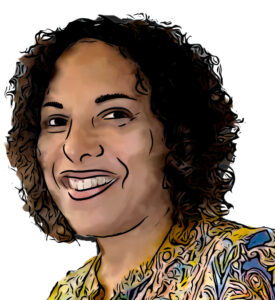
To me, agency starts with self awareness and so taking the time having the difficult conversations, even if it's just with yourself.
—Cynthia Burks
Professor Huggy Rao, who interviewed Cynthia for this piece, put it elegantly and impactfully, noting that Cynthia has lived a life of “caring, sharing, and daring” and the world has benefited greatly because she has. Who better than the little girl on the picket line to understand that the strength of a community, and the ability to realize our individual potential, lies ultimately in our connections and commitment to each other?
Harnessing Doubt
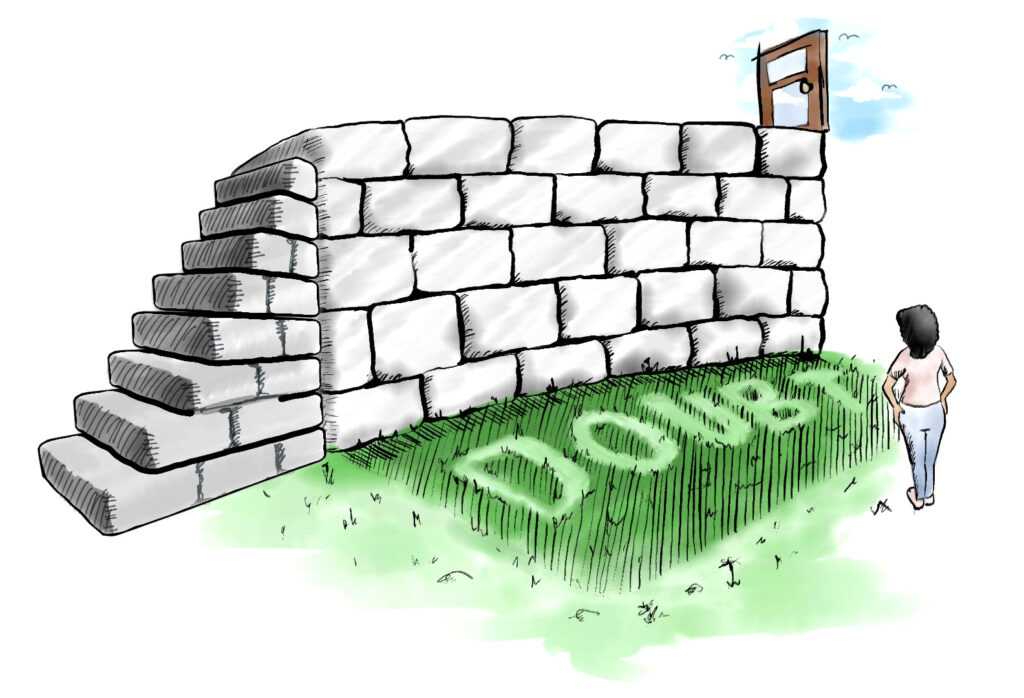
Reflecting back now on those earlier personal and professional choices, Cynthia describes herself as still finding the passageway between doubt and confidence. She has learned that while confidence can be rooted in tangible qualifications, it is important that you believe your voice is worthy of being heard.
Cynthia also pushes herself to be comfortable being uncomfortable, facilitating personal growth. She cites the need for both confidence and doubt, and being able to toggle between the two in an empowering way.
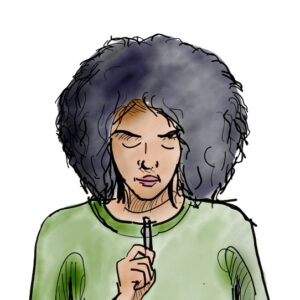
The best advice I can give is try to minimize the amount of space, you give to self doubt. There are enough people that will doubt you Wherever you are, whoever you are, you don't need to add your own name to that list.
—Cynthia Burks
Nevertheless, there have been times of self-doubt and worry. How does Cynthia balance those moments without letting them derail her, and most importantly of all, to move purposefully forward?
Cynthia’s excellence is the sum of all of her experiences, from the picket line as a young girl to the C-suite. Her journey has made her the highly accomplished and compassionate executive that she is today.
Cynthia reminds us that our jobs do not define us; we occupy them as distinct and valuable individuals, and shape them according to our values and experiences.
She may have unexpectedly diverged from a more traditional trajectory; yet throughout her personal and professional choices is an unwavering commitment to a set of values and the optimism of a sense of what is possible.
The case method is a form of active learning. You, the reader, see the world from the perspective of the protagonist. This is a basis for discussion with your fellow learners.
Olivia Hallisey (Undergraduate in Management Science and Engineering) and Justin Willow (Teaching and Learning Hub) prepared this case as the basis for class discussion rather than to illustrate either effective or ineffective handling of an administrative situation, under the supervision of Hayagreeva Rao, Atholl McBean Professor of Organizational Behavior and Human Resources, Graduate School of Business.
Case # HR-47. Copyright © 2020 by the Board of Trustees of the Leland Stanford Junior University. Publicly available cases are distributed through Harvard Business Publishing at hbsp.harvard.edu and The Case Centre at thecasecentre.org; please contact them to order copies and request permission to reproduce materials. No part of this publication may be reproduced, stored in a retrieval system, used in a spreadsheet, or transmitted in any form or by any means –– electronic, mechanical, photocopying, recording, or otherwise –– without the permission of the Stanford Graduate School of Business. Every effort has been made to respect copyright and to contact copyright holders as appropriate. If you are a copyright holder and have concerns, please contact the Case Writing Office at businesscases@stanford.edu or write to Case Writing Office, Stanford Graduate School of Business, Knight Management Center, 655 Knight Way, Stanford University, Stanford, CA 94305-5015.